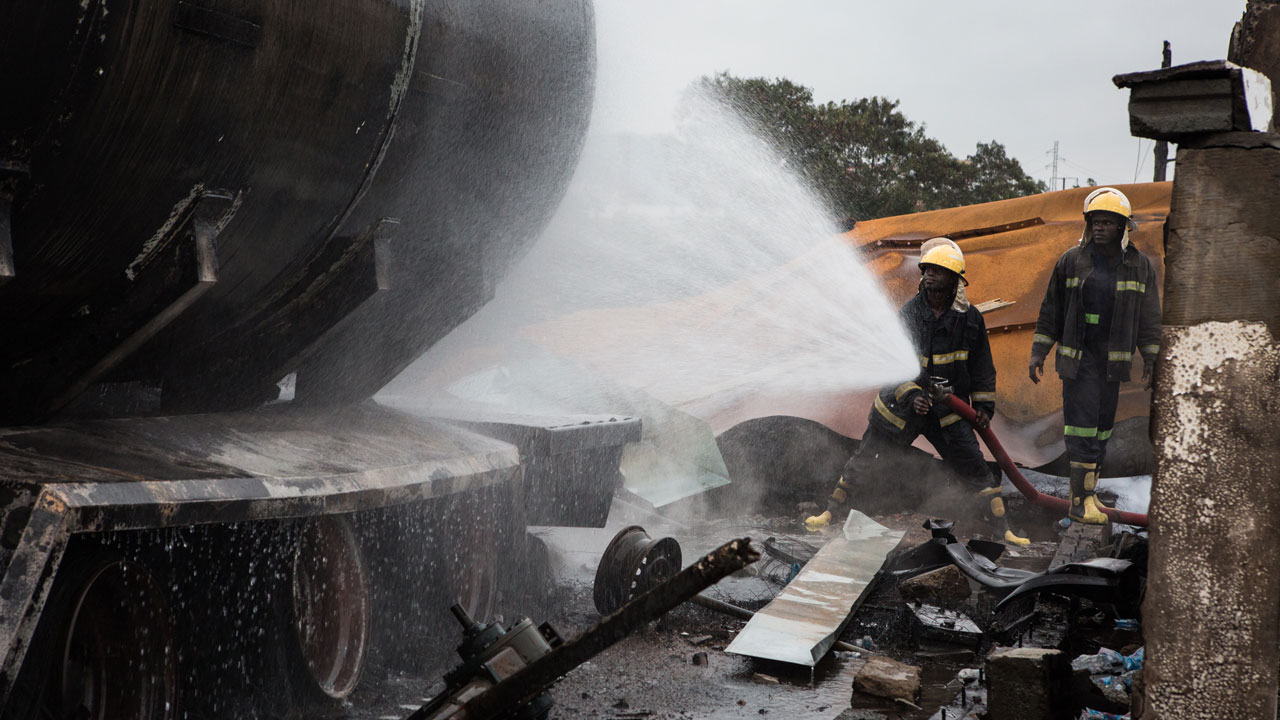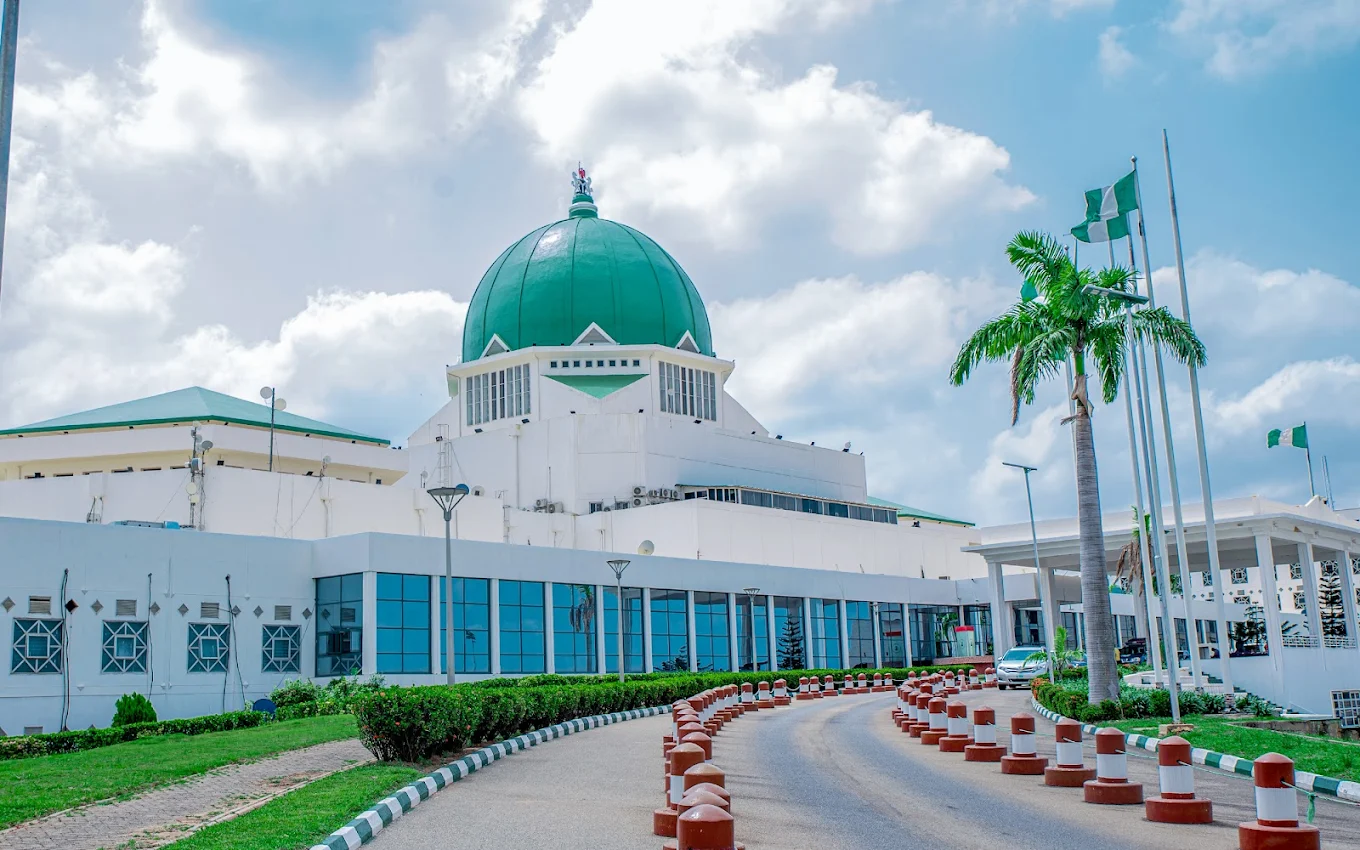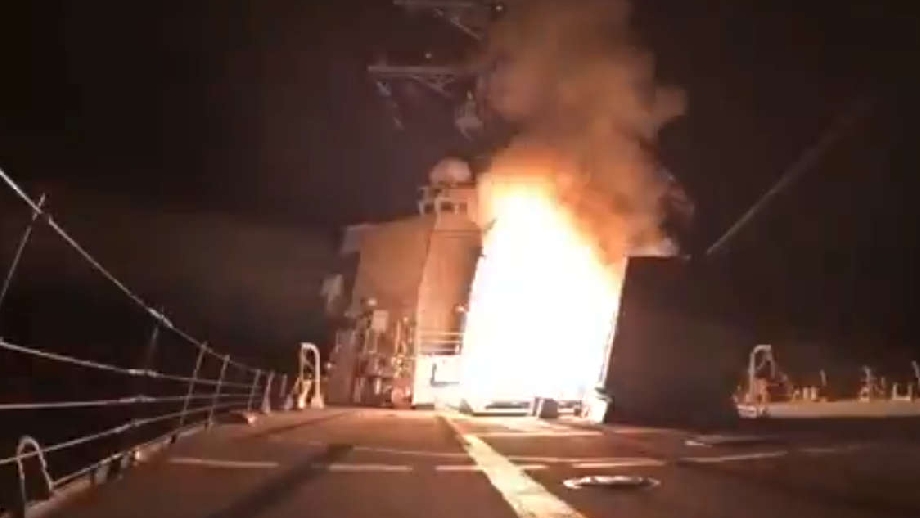
Against the backdrop of a poorly equipped and struggling fire service, the federal and state governments across the country should be concerned over the increasing incidents of fire outbreaks and the attendant massive loss of human lives and properties. Incessant accidents involving tankers carrying petroleum products and resultant explosions have, sadly been largely responsible for the environmental disasters, along with fire outbreaks in public places such as markets. In recent past, the country has been inundated with horrific tales of such accidents; and sadly, especially in relation to tanker accidents, there is no pointer to its end, as tankers still ply the roads freely, causing great havoc to lives and properties. Clearly, the relevant authorities as well as operators of the tankers must rise to the occasion and work out viable strategies to curb these unfortunate occurrences.
There is hardly any state in the country that has not experienced tanker explosion and market fires. From Lagos to Maiduguri and Onitsha to Sokoto, the story is the same. And there is hardly a week that accidents involving fuel tankers does not occur in various parts of the country especially Lagos, which is home to most vehicular movements and automobiles. People are bemoaning the fire disasters ravaging markets, which compound the suffering and poverty in the land. The catalogue of fire disasters is long and worrisome. Yet, the disasters are largely preventable, with proper care by persons concerned and with an embrace of more safety-conscious measures.
Barely a week ago, a horrendous explosion occurred along Mobolaji Bank-Anthony Way in Ikeja after a tanker laden with Liquified Petroleum Gas (LPG) exploded and caught fire that quickly engulfed the nearby buildings leading to the loss of five lives and 25 vehicles burnt. Many shops in the complex were burnt. The midnight inferno left the Ogun State Property Investment Corporation (OPIC) Plaza in ruins before it was put off by a combined team of men of the Lagos State Fire Rescue Service, National Emergency Management Agency (NEMA) and Lagos State Emergency Management Agency (LASEMA).
On January 7, there was a fire incident involving a tanker explosion near the DHL office on Apapa-Oshodi Expressway. The resultant fire affected the busy airport link bridge which has since remained closed to traffic. This was followed by another fire incident at Alade Market in Somolu, where 70 lock-up shops and their wares were destroyed.
In February and March, there were fire incidents at Iddo Train Terminus and Otedola Bridge, respectively. The Otedola Bridge incident involved a tanker that exploded and caught fire. There was also a gas explosion in April at Iyasoko Street in Amuwo Odofin Local Government Area. In May alone, three separate fire incidents occurred in other parts of Lagos; first in Oshodi Market, the cause of which was unknown. A tanker also caught fire at Banire on Ikotun Road in Alimosho LGA. The third was the fire incident at the popular Ladipo Spare Parts Market where it was reported that goods worth billions of naira were destroyed by the inferno. Earlier, fire destroyed the now re-built Tejuosho Market in Yaba and the Balogun Market fires in 2019, ravaging a multi-storey building where traders stockpiled goods meant for Christmas sales.
Outside Lagos, on October 17, 2019, fire disaster wrecked the Ochanja Market in Onitsha, Anambra State, following an inferno that engulfed the bustling commercial city. The fire was ignited after a petrol tanker laden with fuel fell into a ditch and spilled its contents and got inflamed. Six buildings and several shops were destroyed. About seven people, including a nursing mother and her baby were burnt. The National Emergency Management Agency (NEMA) said 2000 traders were affected.
On November 19, 2018, goods worth over N10 million were consumed by fire at the Nkwo Ngwa Market fire in Aba. While this was going on, the Delta State government was battling to assist victims of the Timber Market fire disaster in the state. In Kano, several market fire disasters were recorded in the recent past. On February 6, 2019, fire destroyed 70 shops in Yan’Katako Market in Rijayar Lemo area of Kano. On June 10, 2019, fire reportedly razed six shops in Kofar Ruwa Market (Kasuwa ‘Yan Rodi) in Kano. On April 14, 2014, the Kano State Fire Service said 35 temporary shops were destroyed by fire at Kurmin Yanama Market.
Roughly two months ago precisely in April, no fewer than 12 persons were reportedly killed following tanker explosion which occurred at Oshigbudu village in Agatu Local Government Area of Benue State. The litany of the disasters is unending. It would seem that while some other countries are battling with natural disasters that are hardly preventable, Nigeria has been battling with mostly preventable man-made disasters.
There is need for the authorities and traders to team up and put preventive measures to ensure safety of fuel tankers, as a short term measure; while other options of transporting petroleum products safely are explored. Regulatory measures need be strengthened both on the roads and in markets. For instance, power fluctuation, which has been blamed for some of the fires, could be curtailed through stricter rules on power usage and the use of generators. Furthermore, private security should be beefed up in the markets. Traders, particularly those dealing in cooking and eateries should be sensitised on fire safety, including observance of no smoking.
Many tankers and articulated vehicles plying Nigerian highways are not road worthy and are often driven by reckless and untrained drivers on dilapidated highways, which give room for accidents. This should be checked. Apart from human casualties, the cost of destroyed properties from such accidents is massive and even when not ascertained, impact negatively on the economy and individual livelihood. Insurance cover for people in such high risk public places should be encouraged.
Overall, no measure is too much to make the roads and markets safe for Nigerians from accidents and fire outbreaks.






